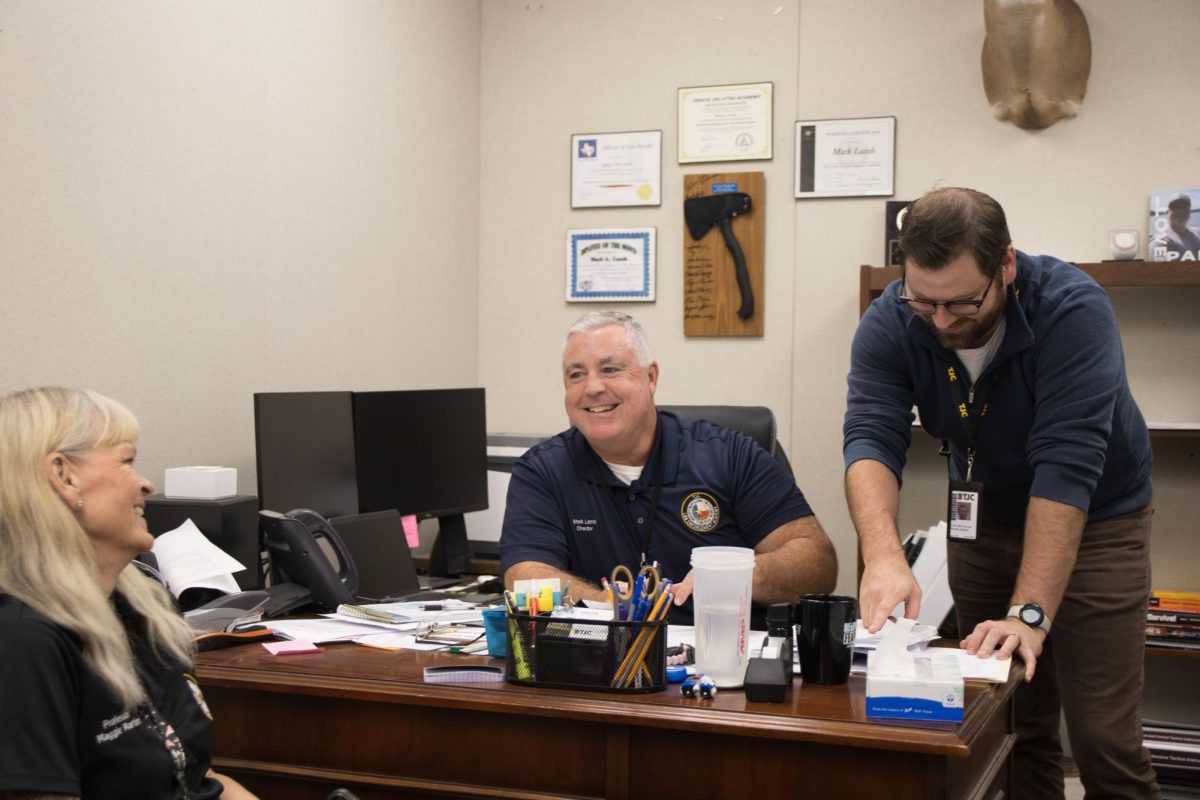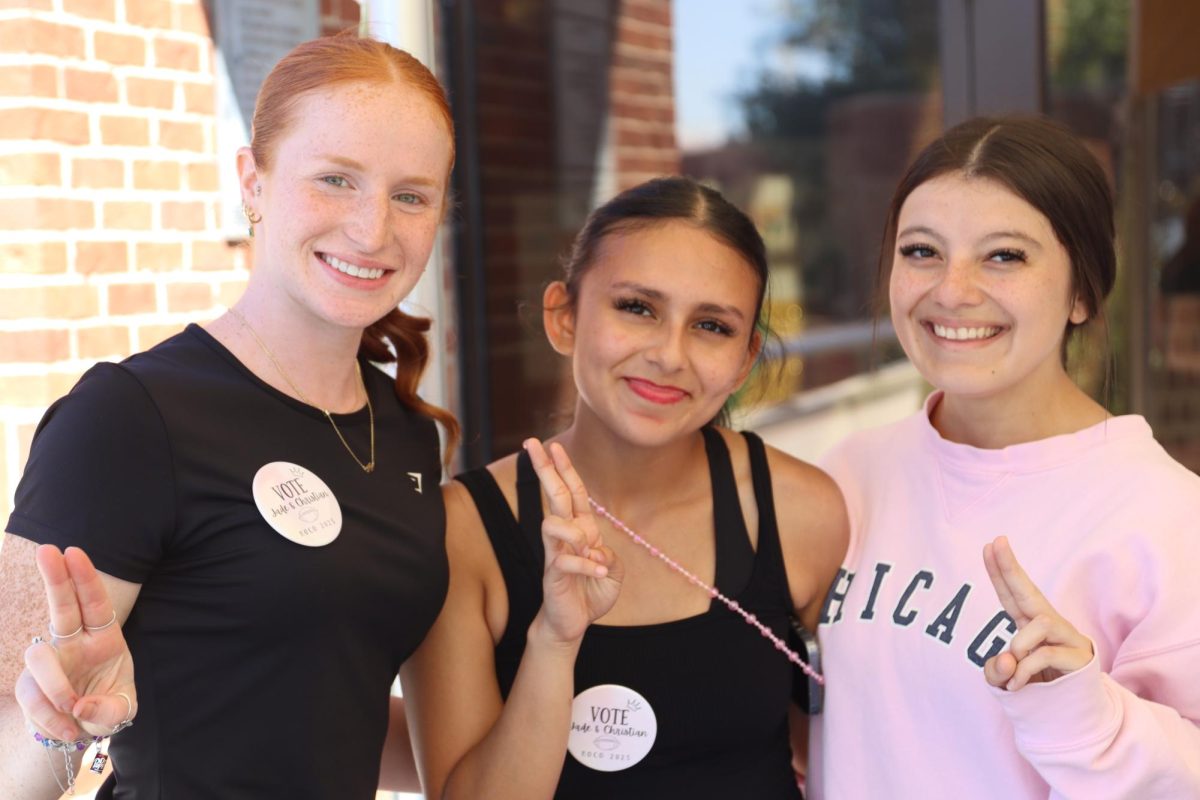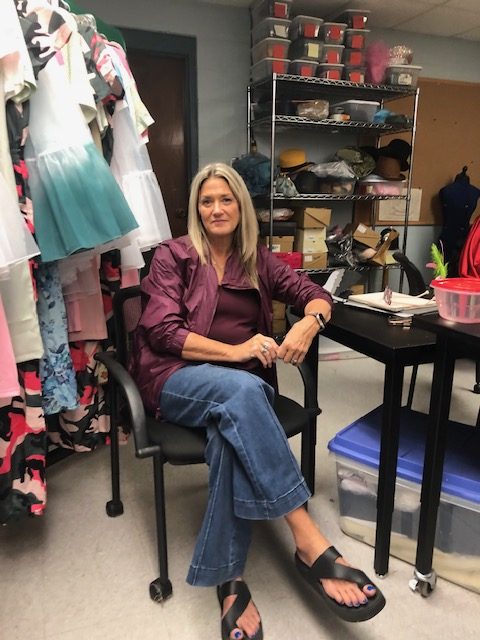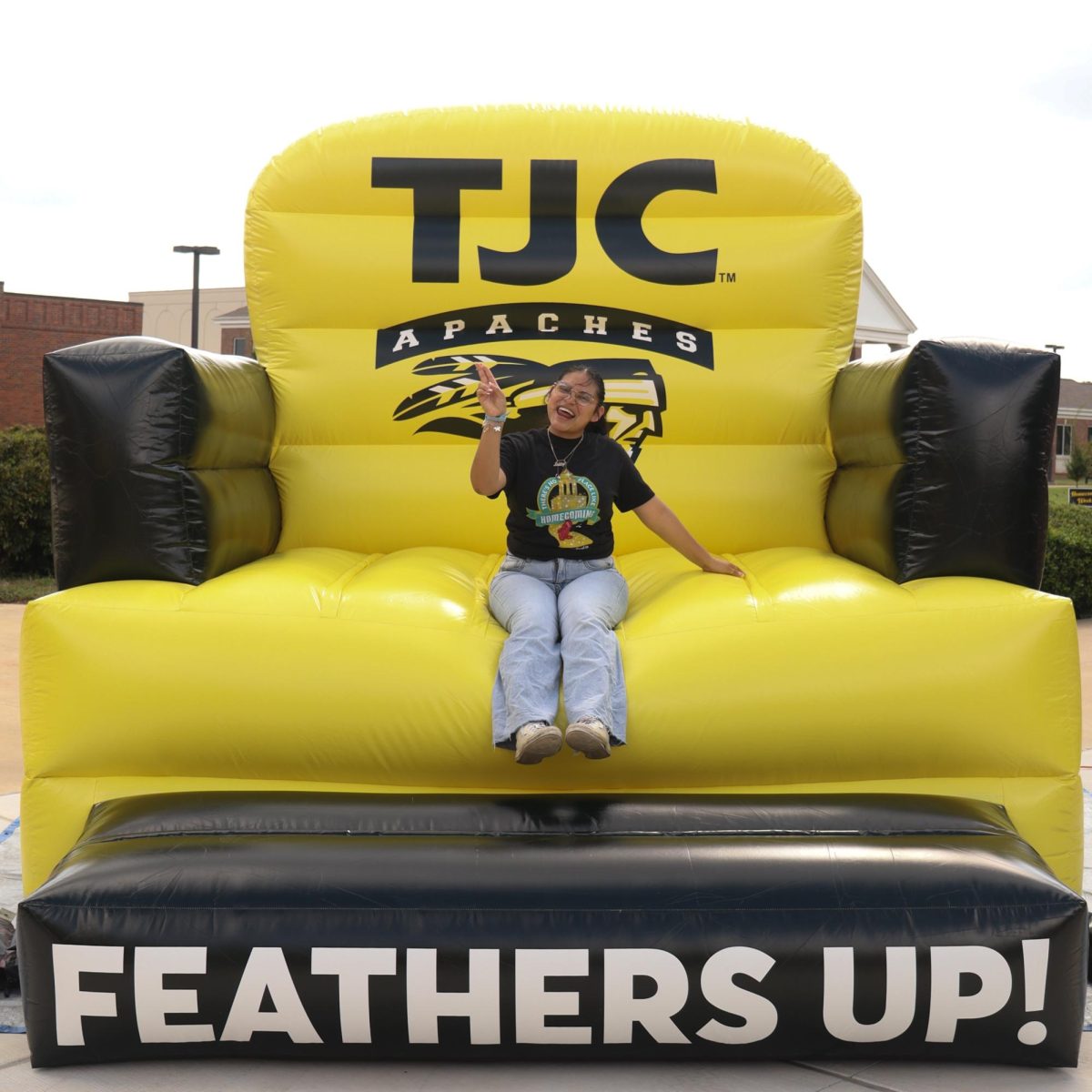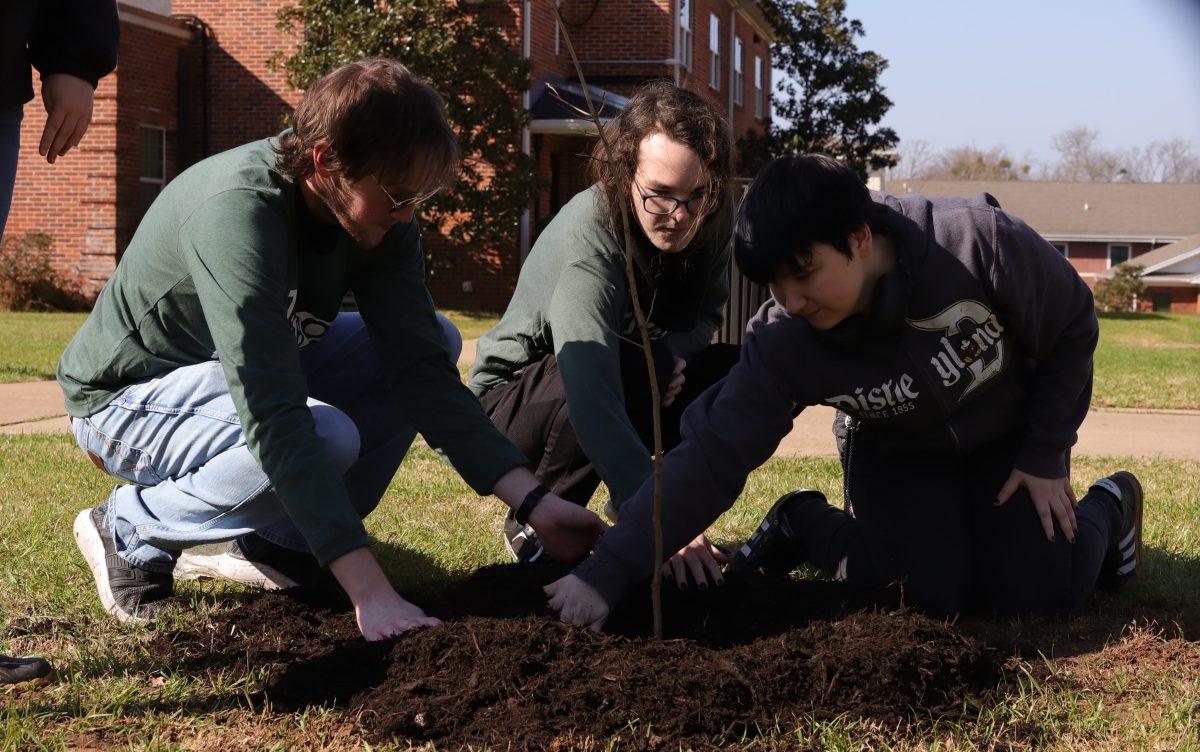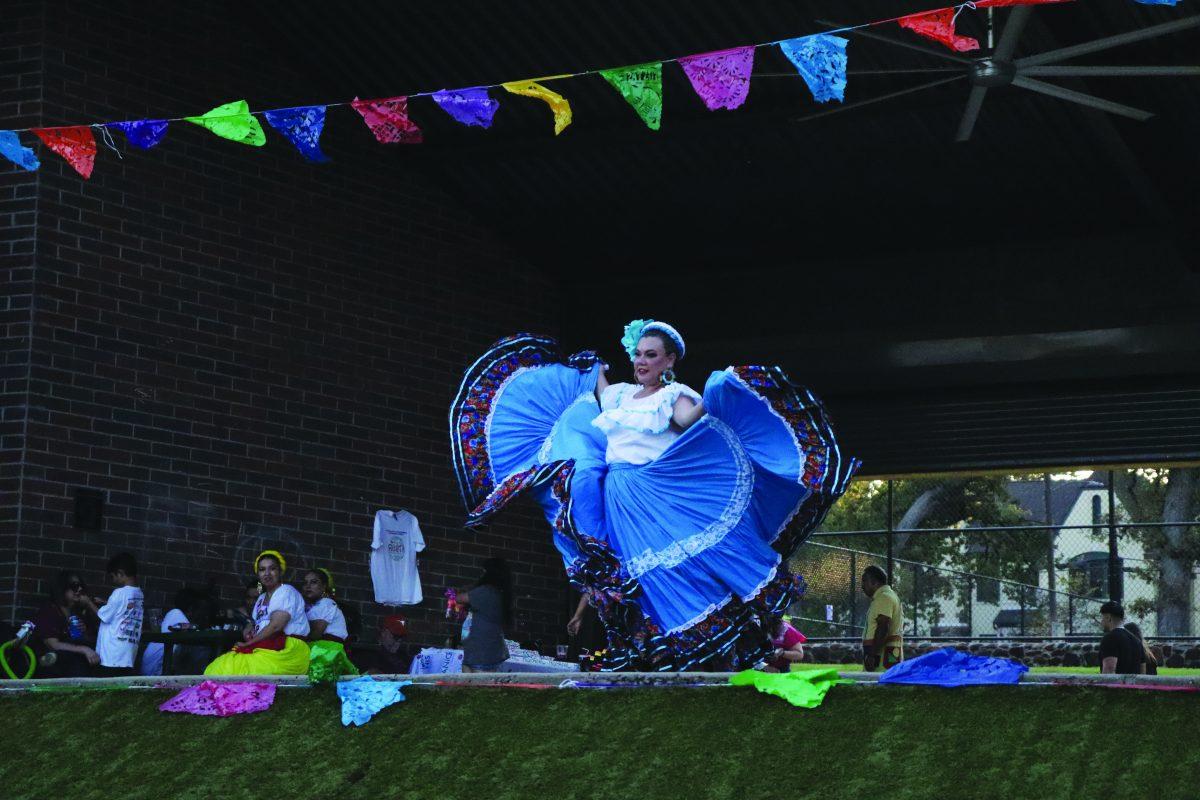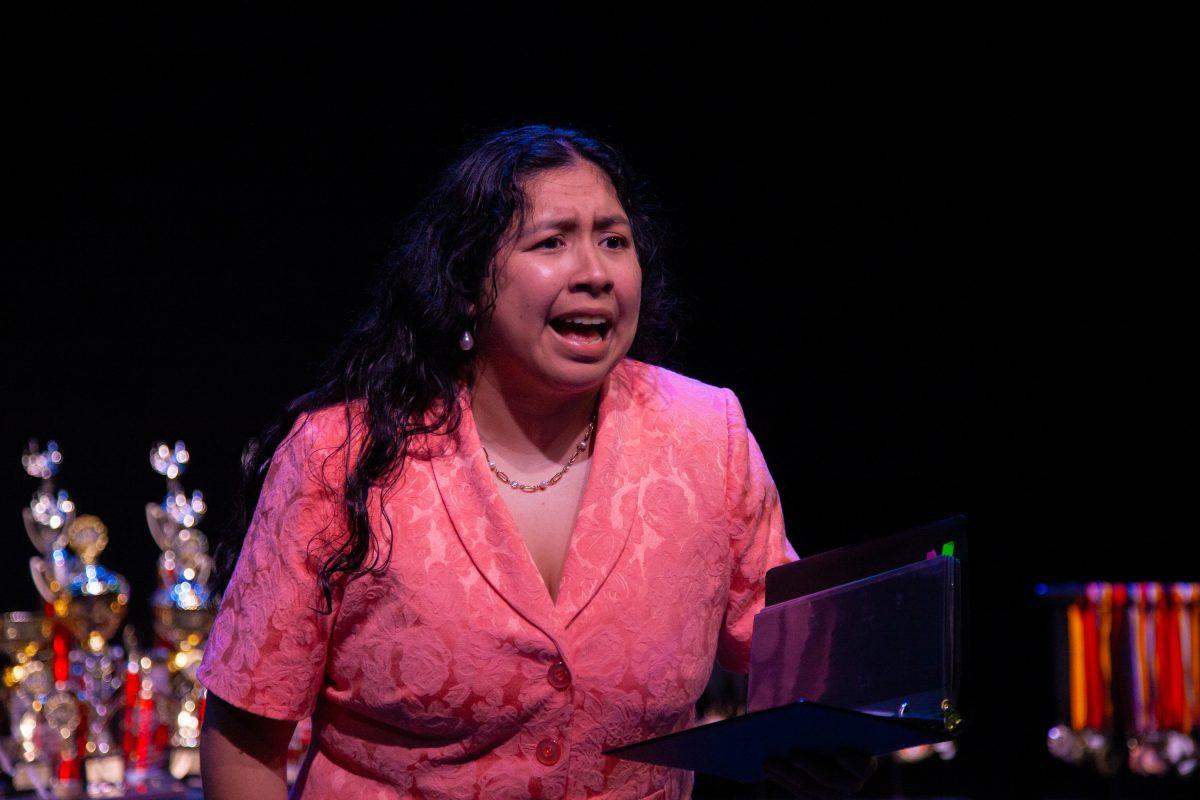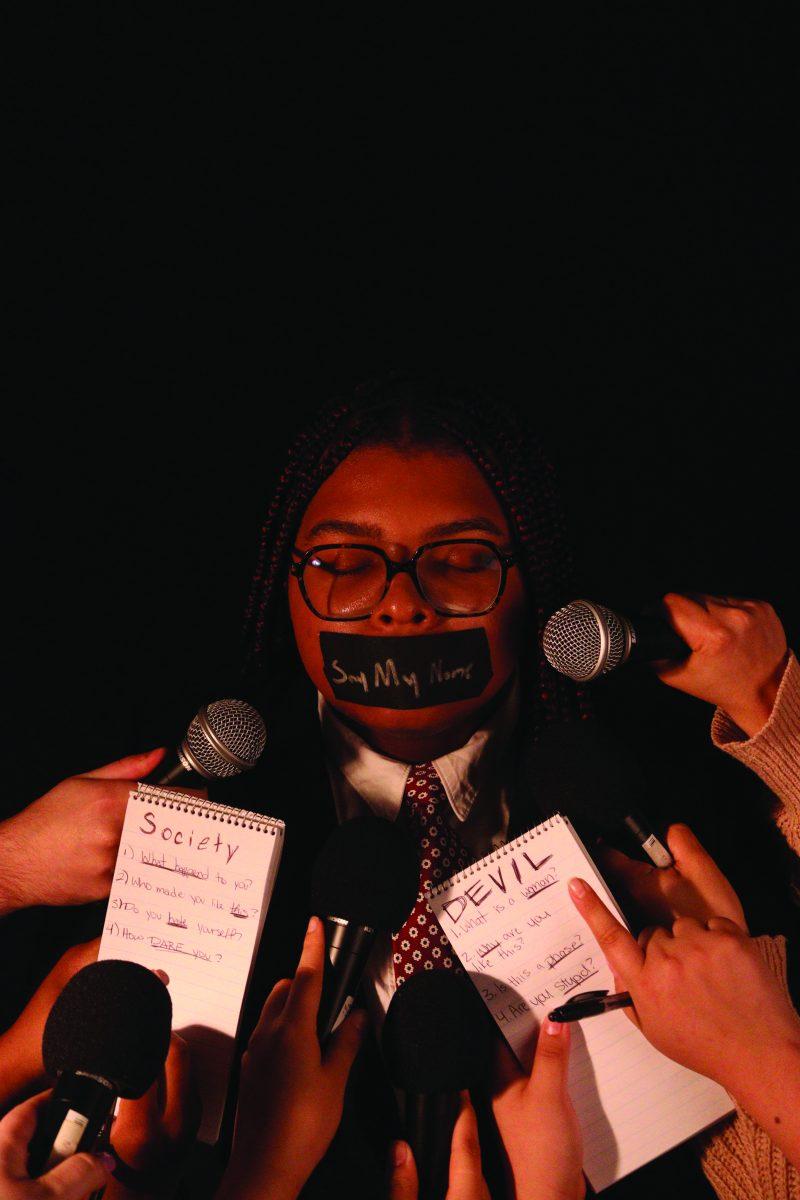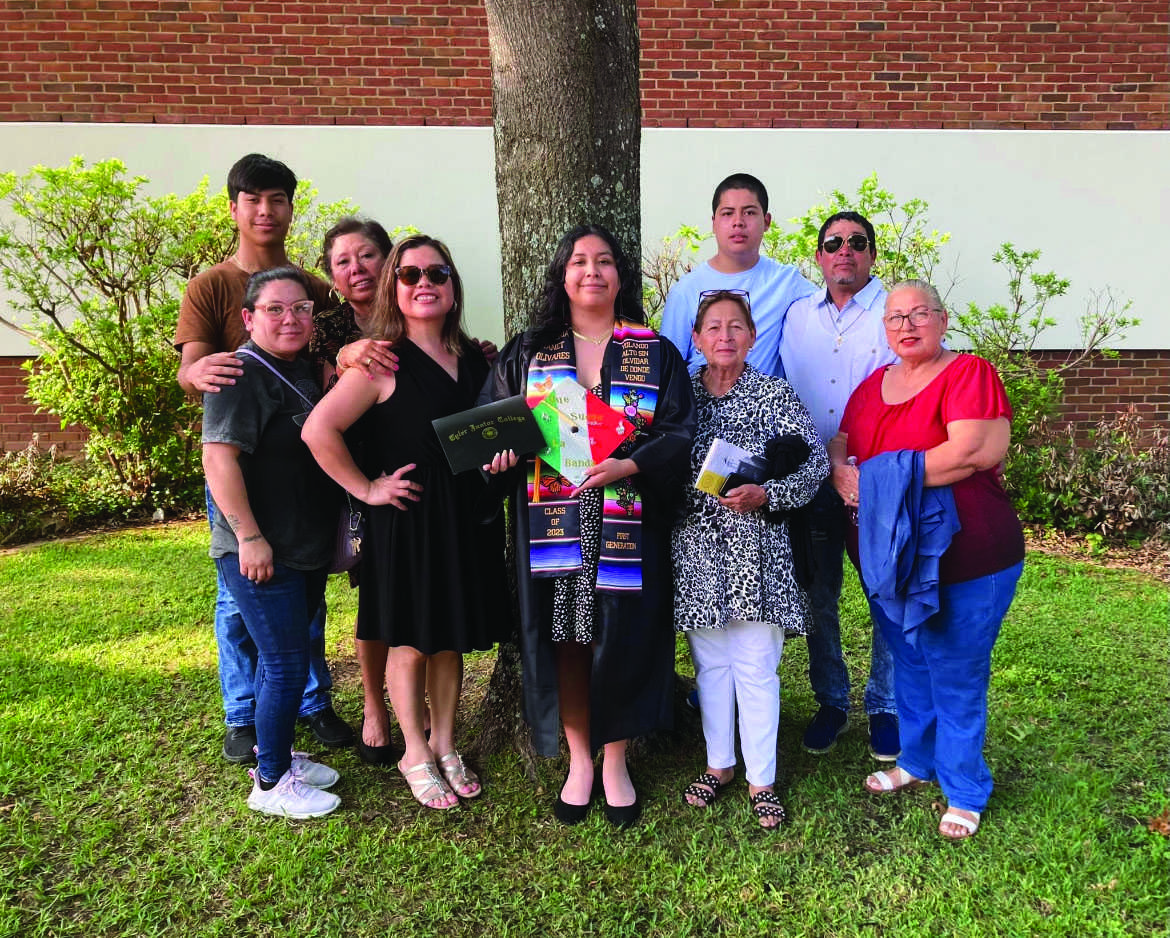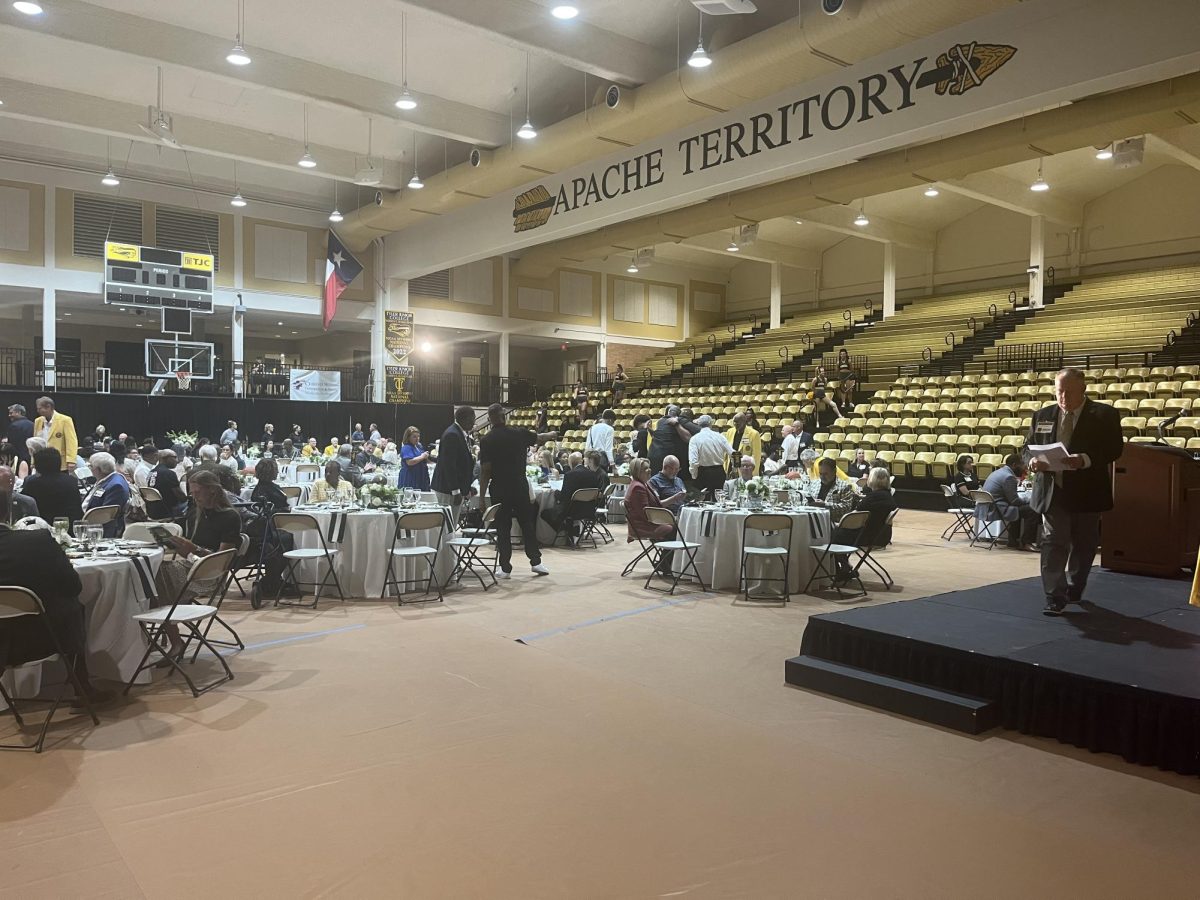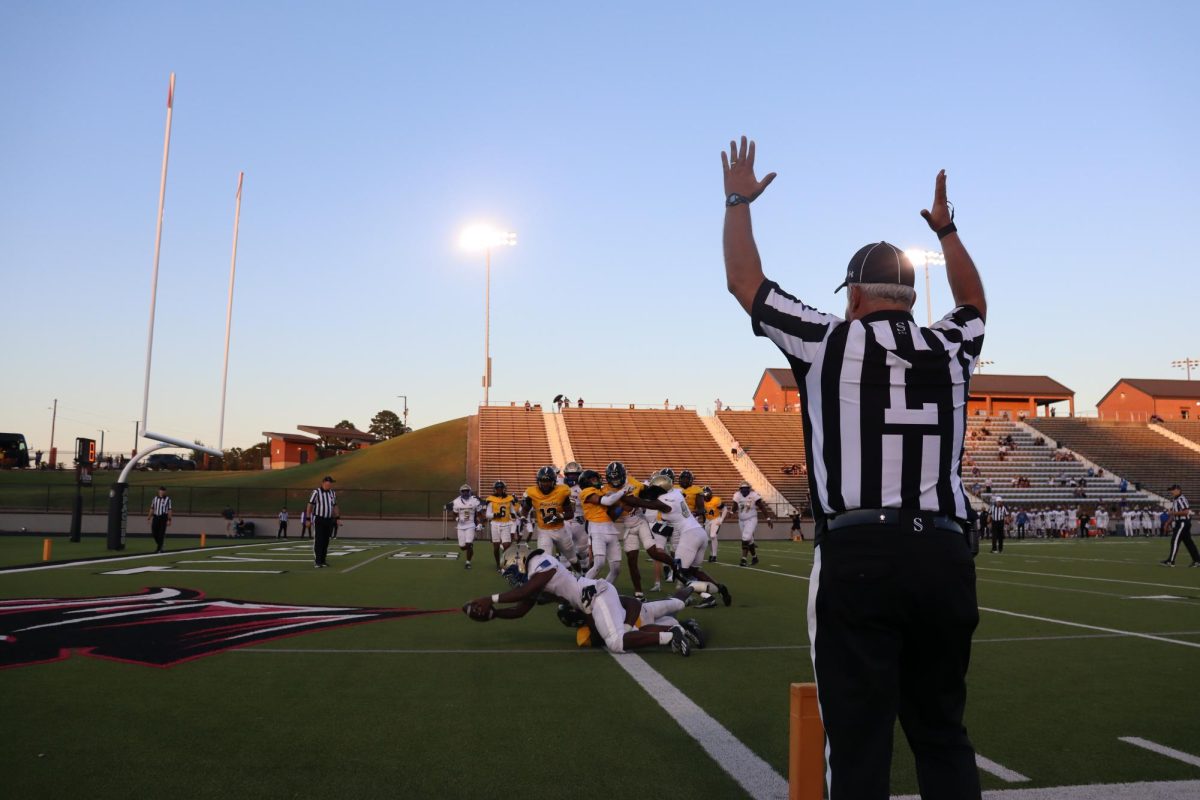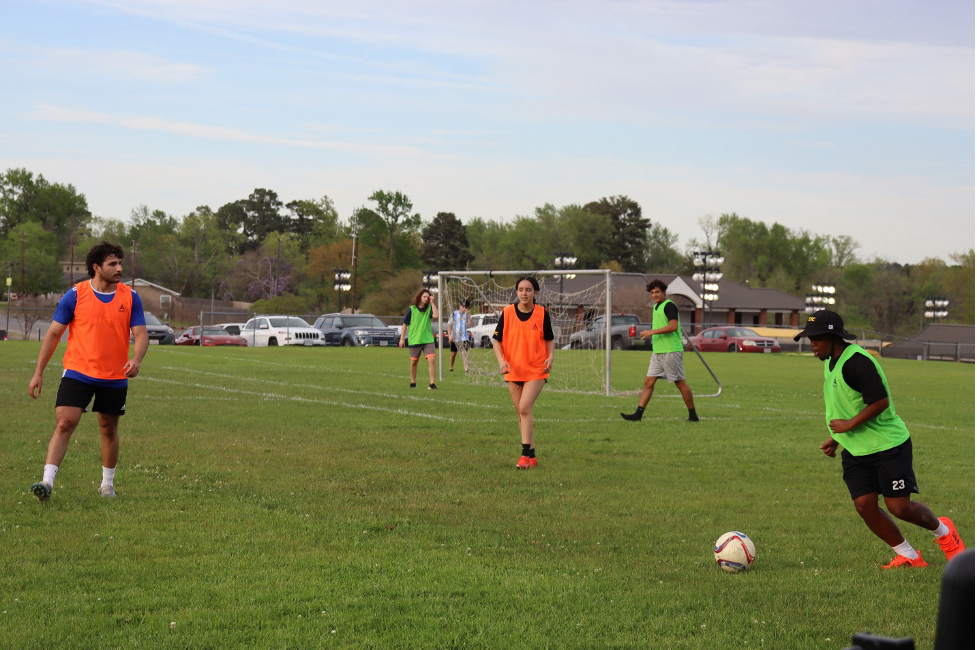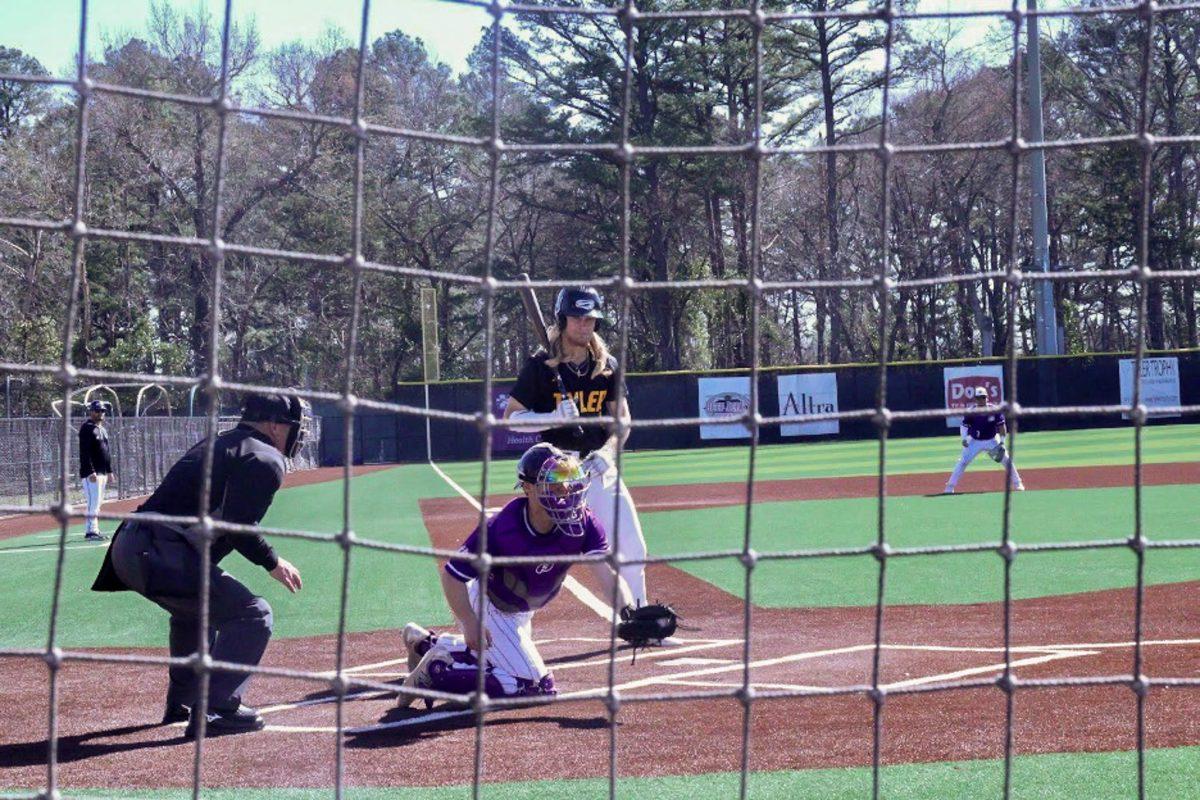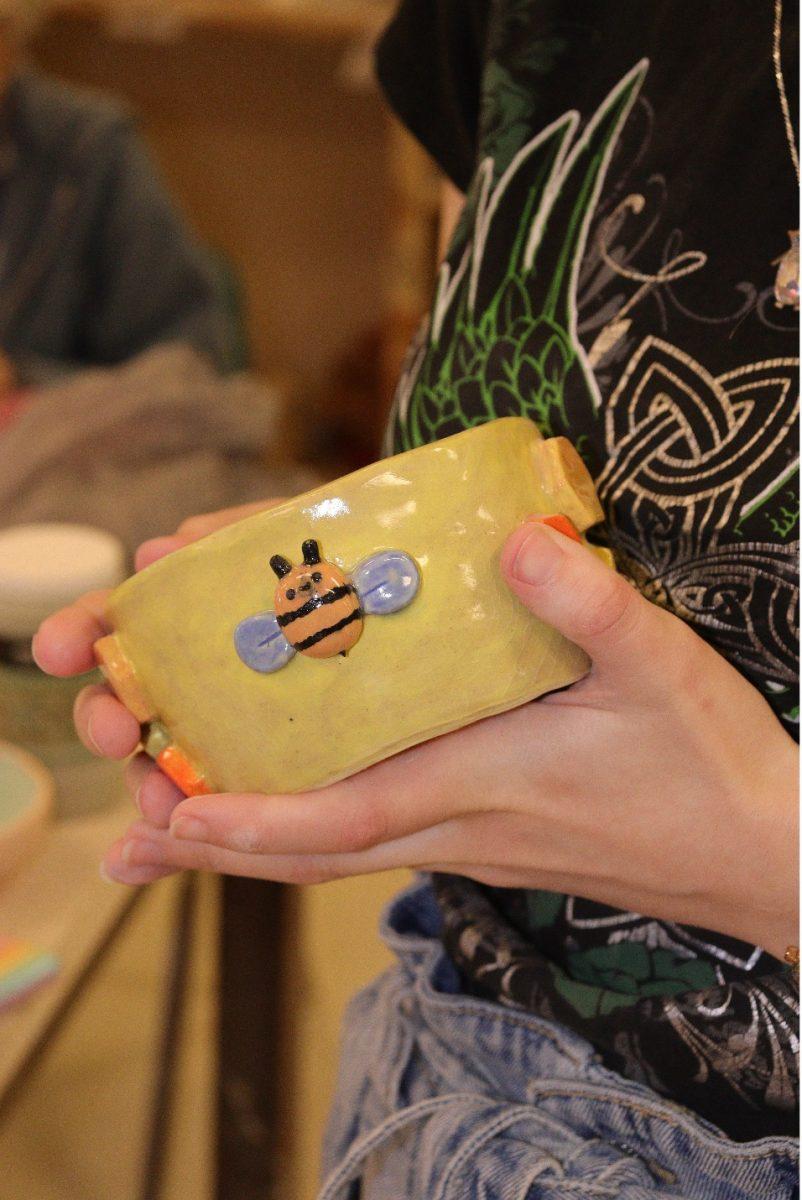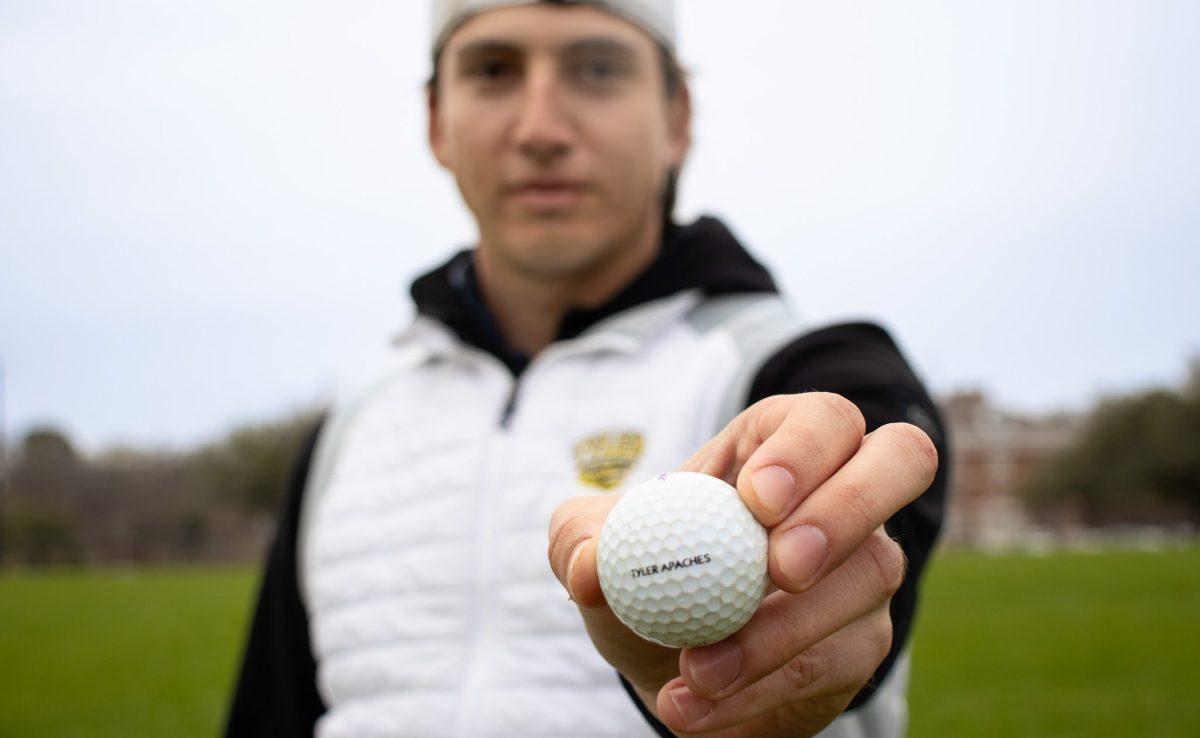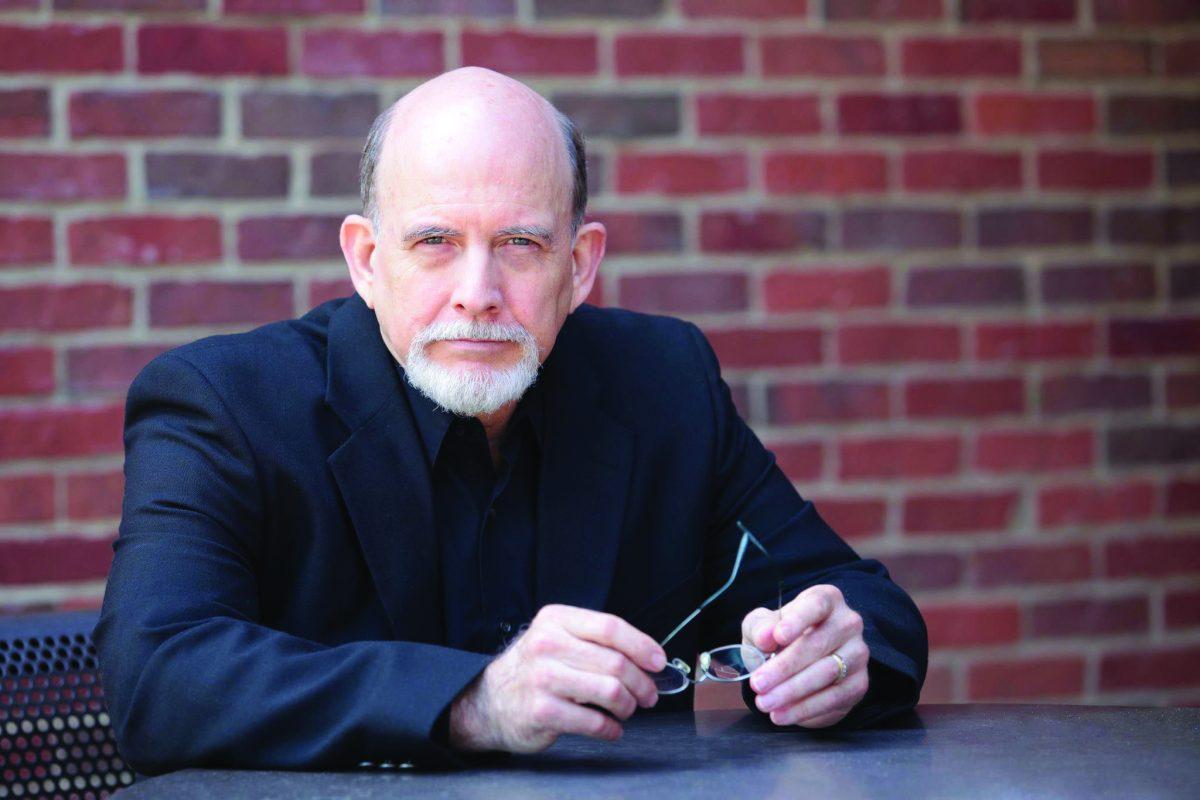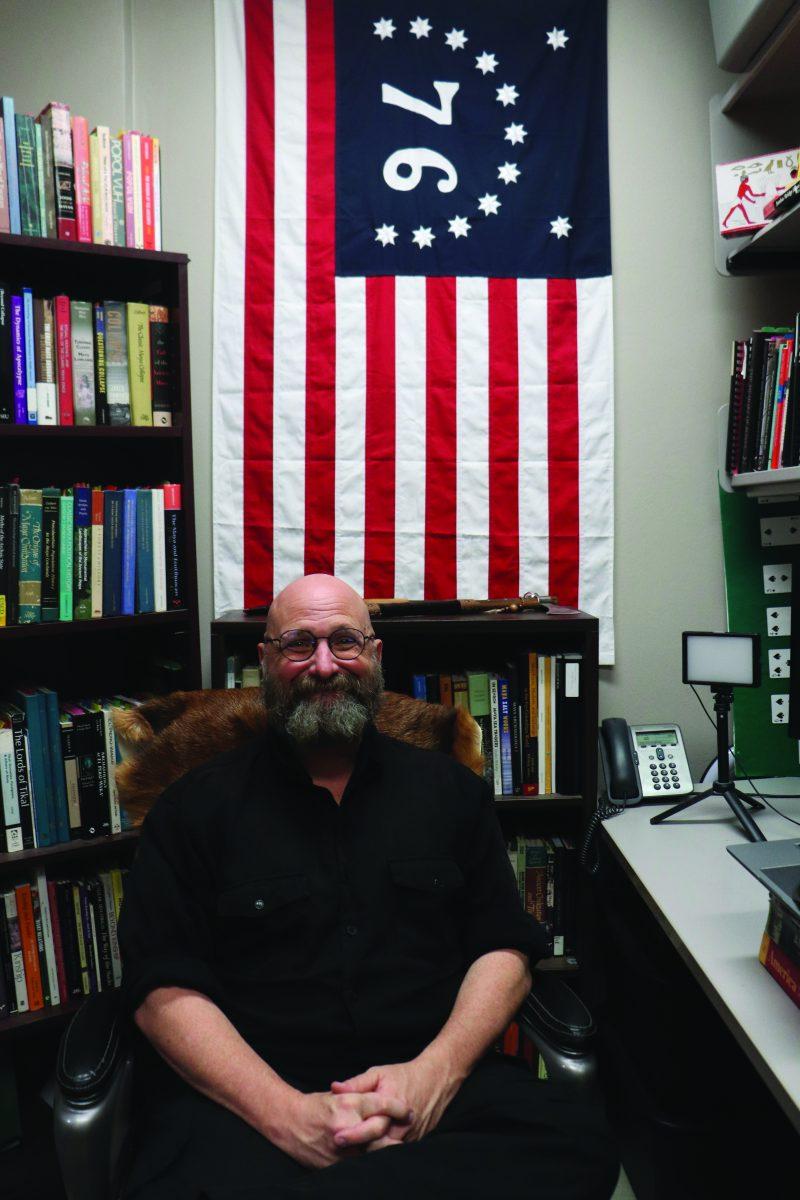Francisco Perez is a sophomore business major on the Apache Golf team. His passion for the game started young in Los Mochis, Mexico, with him swinging his first golf club at three years old. Here, he shares how he copes with the challenges of the game, being a student-athlete and his goals for the future.

Francisco Perez has played golf at TJC for two years. He says his love for the game comes from his family who has played for generations.
Q: Can you tell me how you first got into golf and what inspired you to pursue it in college?
A: So I started when I was three years old playing in diapers. My parents got a set of plastic golf clubs when I was born, so they say that I just went out to the park and started making swings, and that’s how it started. My parents got me in lessons when I was really young, so that’s what brought me over here.
Q: What’s been your most memorable moment on the course during your college career?
A: Probably when I won my first college tournament. That was something that I probably won’t forget during all my career.
Q: How do you balance academics and athletics? What’s your time management strategy?
A: Thankfully, the school makes it really easy for us. I mean, still heavy, because physically and mentally, you get really tired, especially with golf, but all the academics and the TJC staff makes it really easy for us, so we can study in the mornings and then manage to practice in the afternoons, and they help us to manage our time really well.
Q: What’s your typical pre-game routine and mental preparation before a tournament?
A: I like to pray. And after praying, I like to talk to myself and just let myself know through all the things we’ve been through, all the effort we have put, all the sacrifices we’ve made before getting around so we give everything. Me and myself, me and my mind, me and my soul – just give everything out there. So that’s what I like to do before going out and playing.
Q: How do you handle pressure when you’re in a competitive situation or playing a close match?
A: I do a lot of meditation, lot of breathings that have helped me to keep my mind blank. That’s a really important goal, like not thinking a lot of stuff. So meditating has helped a lot with my game.
Q: What part of your game have you worked the hardest to improve since you started college golf?
A: The mental game. It’s probably what every golfer tries to work the hardest, because at this level, that’s what that’s the difference between all of us, the mental game. I think, like, everyone can hit the ball really good, but the mental game is what makes you win.
Q: Who’s your biggest influence or role model in the golf world?
A: I’ve never been like a big golf fan. I obviously got more into it since I started playing college golf, because I used to play soccer, but if I have to take like a professional player, I’ll say Tiger Woods. I mean, I grew up watching him, and just seeing what all he has accomplished has obviously motivated every player that has played the sport.
Q: How do you mentally recover from a bad round?
A: I think that’s one of the hardest parts of golf, especially when things are not going your way, because it’s a sport where that can happen a lot. Like you can be playing your best and just one day you have a really bad round. You just have to forget it. It’s like life. You have to live day by day, shot by shot, hole by hole, and forget about the past as quick as you can, and do not think about the future as much as you can. You have to stay in the present as much as you can.
Q: What’s been the most challenging course that you’ve played and what made it so difficult?
A: I think that the hardest course I’ve played is the one we practice in, and that’s made me improve a lot. The Eagles Bluff Country Club. I don’t know if it’s the hardest. I cannot think about the hardest one, but probably one of the hardest. And playing in a course like that just makes you improve a lot.
Q: How do you approach playing on different courses with varying conditions like weather and the layout?
A: So in golf, that’s one of the most beautiful things, that you don’t play the same course, the same field, the same course, however you want to say it. Every time, each course is different. And like you just said, it depends on the weather. You can play the same course, but if the weather conditions are not the same, the course has changed a lot. So it’s something you have to put a lot of focus on. If it’s wet, if it’s dry, if it’s hard, if it’s soft, if the wind’s blowing, if it’s raining. There are a lot of factors in golf that change the game.
Q: What advice would you give to younger golfers hoping to play at the college level?
A: Enjoy the game. Don’t stress. Trust the process. That’s something that our coach always tells us, just live day by day, train hard and just trust, trust in yourself. That’s what this game is about. Confidence. As long as you have confidence, you’ll get whatever you want to do. Obviously, with hard work, but trust and confidence is the best advice I can give you to work on.
Q: What kind of support do you receive from your coach and your teammates, and how does it impact your game?
A: The support that I have from my coach is probably the biggest thing that has helped me to improve my game, and obviously, we have a really nice group. We’re really close. The teammates and I and our coach, we’re close. We care about each other. We try to help each other a lot every day, day by day, so we can, at the end of the day, accomplish our goals, that is winning national championships.
Q: How do you stay motivated and focused throughout the college golf season?
A: That’s a hard question, because it’s hard not to lose focus. And in golf, when you have a lot of other stuff to do, like school and maybe external factors like family or friends. But what helps me a lot is just like going out every day over there just keeps me motivated. Seeing my family and trying to make a future for myself and in the future might help someone else and just demonstrate to everyone else what I’m capable of and satisfy myself too.
Q: What are your goals for the rest of your college career and beyond? Do you have aspirations to play professionally?
A: Yeah, I want to as soon as I graduate. I’m trying to go pro, but first of all, my mom has always told me I need to finish my studies first before going pro. So that’s a plan B that you want to have secure. That’s something that I can tell to the young people too, like, if you’re not sure if you can go pro or not, you just always have a plan B. So I’m trying to finish my studies first, transfer after this semester, play two or more three years, depending on the NCAA rules, and then try to go pro. And we’ll see what happens.

